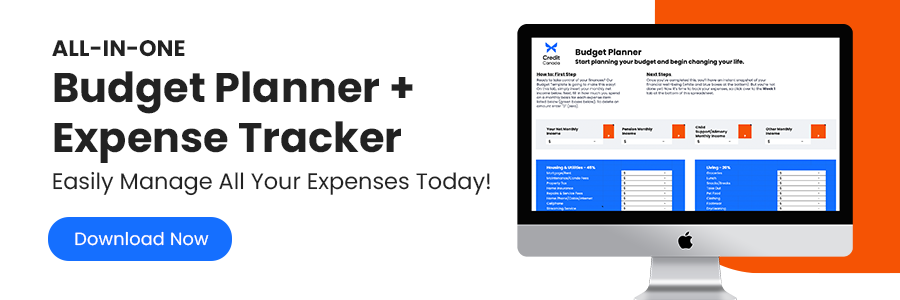
Not since the recession of 2008 has our country been in such dire financial straits. Even before the pressures of the COVID outbreak, many people were struggling financially and had to consider whether they should file bankruptcy proceedings.
According to the Toronto Star, Canadians are filing for insolvency in record numbers, with the Government of Canada revealing that insolvencies totaled 35,155 in the final three months of 2019, the most in any one quarter since 2010. And that’s not all. According to one study, 46% of Canadians are within $200 of facing insolvency every month, up from 40% in the previous quarter.
While it may seem like everyone is filing for bankruptcy, that doesn’t mean you should, too. There are a few reasons why not to file bankruptcy — such as the way it can impact your future employment opportunities and credit score.
Fortunately, there are other options available to you before you decide to take that kind of a financial plunge. In this blog, we offer some information about the consequences of filing bankruptcy and some alternative debt relief options.
What Is Bankruptcy?
Bankruptcy is a legal process administered by a Licensed Insolvency Trustee (LIT), formerly known as a licensed bankruptcy trustee. The LIT, who is licensed by the government, will tell you how to file for bankruptcy in Canada (typically during a free consultation).
They will talk to you about the bankruptcy process, what debts you may still have to pay, what assets you may be able to keep, how long you will be considered bankrupt, and other ways the decision can impact your life — and lifestyle. The advice of an LIT can prove crucial for helping you decide whether to file bankruptcy or not.
Of course, the ultimate goal for those declaring bankruptcy is to receive the coveted “bankruptcy discharge” which is obtained after successfully completing the bankruptcy process. This bankruptcy discharge releases a debtor from most types of debt.
Six Reasons to Avoid Filing Bankruptcy
Is filing for bankruptcy a good idea? This is a common question for many people who are struggling to make ends meet as bills continue to rise and threaten to drown them in an inescapable cycle of debt.
If you’re deep in debt, you might be thinking bankruptcy is a great way to get out from underneath it and get a “clean slate,” so to speak. While it may be the best option for some people, there are a number of reasons to avoid filing bankruptcy — unless, of course, you and an unbiased financial expert determine you simply have no other choice.
1. Impact on Your Credit Rating
One of the first considerations to make when asking yourself “Is it good to file bankruptcy or not?” is the impact it will have on your credit. While most people considering bankruptcy already have bad credit, it’s often not irreparable.
Declaring bankruptcy, however, will drop it to a 9 — the lowest rating there is — for the duration of the bankruptcy period plus an additional six years following the bankruptcy discharge (or for 14 years if you file bankruptcy proceedings more than once).
2. Potential Loss of Assets
When asked the question “Why avoid bankruptcy?” one of the most common answers LITs and financial advisors might give is that it could result in the loss of your assets.
While there are exemptions as to what assets can and cannot be seized during the bankruptcy process depending on the province or territory you live in, non-exempt items will have to be surrendered to the LIT.
The LIT will sell them and distribute the funds collected from the sale to your creditors so they can recover a portion of the money they were owed. The LIT does have options as to how assets are sold and funds allocated, but this should be discussed with an LIT.
3. Immigration Delays
While you are completing an undischarged bankruptcy (or in other words, you are considered an undischarged bankrupt person), you cannot act as a sponsor to bring a family member or loved one into the country.
So, for people dealing with the Government’s immigration and citizenship services, filing for bankruptcy in Canada may not be a good idea. It may be necessary to put the insolvency filing off until the immigration matter is settled — or to find an alternative method for getting out of debt.
4. Personal Loan Denials
If you have a mortgage when you declare bankruptcy, as a secured asset you will generally be able to keep it as long as you continue to make payments on it. But you won’t have any luck obtaining a mortgage while you’re in an undischarged bankruptcy.
Under the Bankruptcy and Insolvency Act, a bankrupt requesting credit over a certain amount must provide proof so the lender knows they are undischarged. Following discharge, options may be extremely limited until you rebuild your credit back up from it’s lowered rating — which can take years.
5. Business Loan Denials
Running your own business? Well, you may not be able to obtain business loans after you file bankruptcy proceedings. It really depends on the situation and the decision is ultimately up to the lender.
Some lenders may give you a business loan if, for example, you declared personal bankruptcy due to a medical situation that left you broke. But, if you’ve filed a business bankruptcy because you overextended your resources, they may not be as sympathetic. This is why many business owners don’t file bankruptcy if they can avoid it.
6. Potential Impact on Career
It's illegal for a company to fire you for declaring bankruptcy. However, it is NOT illegal for them to not hire you if you have a bankruptcy on your record. And today, many employers are doing credit checks before hiring.
Eliminating applicants with bankruptcies is an easy way to weed through hundreds of applications. Having bankruptcies on your record can be especially detrimental if you’re working in the banking, insurance, and real estate industries.
So, while bankruptcy might be the best (or only) option for some, there are still a multitude of reasons to avoid bankruptcy.
So, what are some of your alternatives? Here are a few options for how to avoid bankruptcy:
How to Avoid Bankruptcy Proceedings
In a previous blog, we highlighted ten ways to relieve yourself of debt without declaring bankruptcy. You can check out the full story here. Here are those ten items listed very briefly below as options you might want to consider before you file bankruptcy:
1. Negotiate with Creditors
One of the first things you should do is reach out to your creditors and negotiate with them. They may be willing to settle for significantly less than you owe if they know you’re considering bankruptcy, which may likely result in them receiving nothing. This can help you avoid bankruptcy and preserve your credit score while making your debt easier to deal with.
2. Liquidate Some Assets
Sell some valuables (jewelry, electronics, stocks, even a car) and put the money toward your biggest or highest-interest debt. If you start filing for bankruptcy in Canada, you might lose these assets anyways — selling them on your own terms can help you get more for them (or at least make the process less stressful since you’d be in control of it).
3. Get Help from Family or Friends
This is always a touchy subject, but if done the right way with a payback plan in place so that you’re not asking for a handout, it definitely beats filing for bankruptcy. If family or friends aren’t an option, using online donation/fundraising platforms like GoFundMe may be a viable alternative.
4. Pick up a Part-Time Job or Side Gig
Whether it’s bagging groceries part-time or driving an Uber, finding ways to earn extra cash can help you alleviate your debt. This not only helps you avoid bankruptcy, it can be a good way to find a new line of work if you find the “side gig” to be more fun and rewarding than your current career.
5. Consolidate Debt into Your Mortgage
Consolidating your debt into your mortgage could save you hundreds per month if your credit is in good standing. This is often preferable to filing bankruptcy in Canada, but it’s important to be careful about your spending to avoid racking up more debt afterwards.
6. Take out a Home Equity Line of Credit (HELOC)
If you can obtain a low-interest home equity line of credit (HELOC), you may want to consider borrowing against your home. Your credit doesn’t even have to be all that great because your home is used as collateral.
One cautionary note: Whatever you do, DO NOT default on your payments, or you'll risk losing your home. If you're considering a HELOC, be sure to speak to an unbiased professional first to make sure you're not putting yourself in a more difficult or vulnerable financial situation.
7. Dip into Retirement Funds
Planning for your retirement is important, but if borrowing some funds now can significantly benefit your situation, it’s worth speaking to a professional about it. Using retirement investments can help you avoid the consequences of filing bankruptcy, but it’s important to weigh the pros and cons of dipping into your retirement funds to pay off your current debts — though the rate of return on many investments is often much lower than the interest on credit card debt.
8. Take out a Debt Consolidation Loan
If your credit is good, you may be able to get a debt consolidation loan to pay all your debts off. Then you'll only have to make payments on the new, lower-interest loan, as long as you don't continue to use your credit cards and other credit products. This makes consolidation loans an excellent alternative to filing for bankruptcy.
9. Enter a Debt Consolidation Program
Work with a certified Credit Counsellor from a not-for-profit credit counselling agency, like Credit Canada, who will negotiate with your creditors to reduce or stop the interest on your debts, rolling them together into one easy (and lower) monthly payment. You will also have a set completion date that you'll be debt-free by. Though this can impact your credit, it’s much less of an impact than filing bankruptcy would have.
10. Consider a Consumer Proposal
Another form of insolvency are consumer proposals which involve paying your creditors a portion of what you owe, while avoiding some of the six big downsides of bankruptcy. LITs handle consumer proposals too, so if you're considering bankruptcy, ask an LIT if a consumer proposal might be a better option for you instead.
Get Debt Relief Today
At Credit Canada, we’ve counselled thousands of Canadians considering insolvency, and helped them avoid bankruptcy simply through better money management and a little insider information. This includes budgeting and watching how and where you spend your money. You can do this online with our free, downloadable Budget Planner + Expense Tracker – it’s easy to use and the instructions are included in the spreadsheet.
Of course, we understand that you may feel your situation has gone way beyond budgeting help. In these cases, a Debt Consolidation Program may be a great option, and you don’t need good credit to qualify. All you need to focus on is making your new, lower monthly payment every month on time. The entire program can be completed in as little as two years, and after you've completed the program, your certified Credit Counsellor can give you tips on how to rebuild your credit.
Contact us today at 1.800.267.2272 to book a free and confidential counselling session and learn about your debt relief options!

Frequently Asked Questions
Have a question? We are here to help.
What is a Debt Consolidation Program?
A Debt Consolidation Program (DCP) is an arrangement made between your creditors and a non-profit credit counselling agency. Working with a reputable, non-profit credit counselling agency means a certified Credit Counsellor will negotiate with your creditors on your behalf to drop the interest on your unsecured debts, while also rounding up all your unsecured debts into a single, lower monthly payment. In Canada’s provinces, such as Ontario, these debt payment programs lead to faster debt relief!
Can I enter a Debt Consolidation Program with bad credit?
Yes, you can sign up for a DCP even if you have bad credit. Your credit score will not impact your ability to get debt help through a DCP. Bad credit can, however, impact your ability to get a debt consolidation loan.
Do I have to give up my credit cards in a Debt Consolidation Program?
Will Debt Consolidation hurt my credit score?
Most people entering a DCP already have a low credit score. While a DCP could lower your credit score at first, in the long run, if you keep up with the program and make your monthly payments on time as agreed, your credit score will eventually improve.
Can you get out of a Debt Consolidation Program?
Anyone who signs up for a DCP must sign an agreement; however, it's completely voluntary and any time a client wants to leave the Program they can. Once a client has left the Program, they will have to deal with their creditors and collectors directly, and if their Counsellor negotiated interest relief and lower monthly payments, in most cases, these would no longer be an option for the client.







